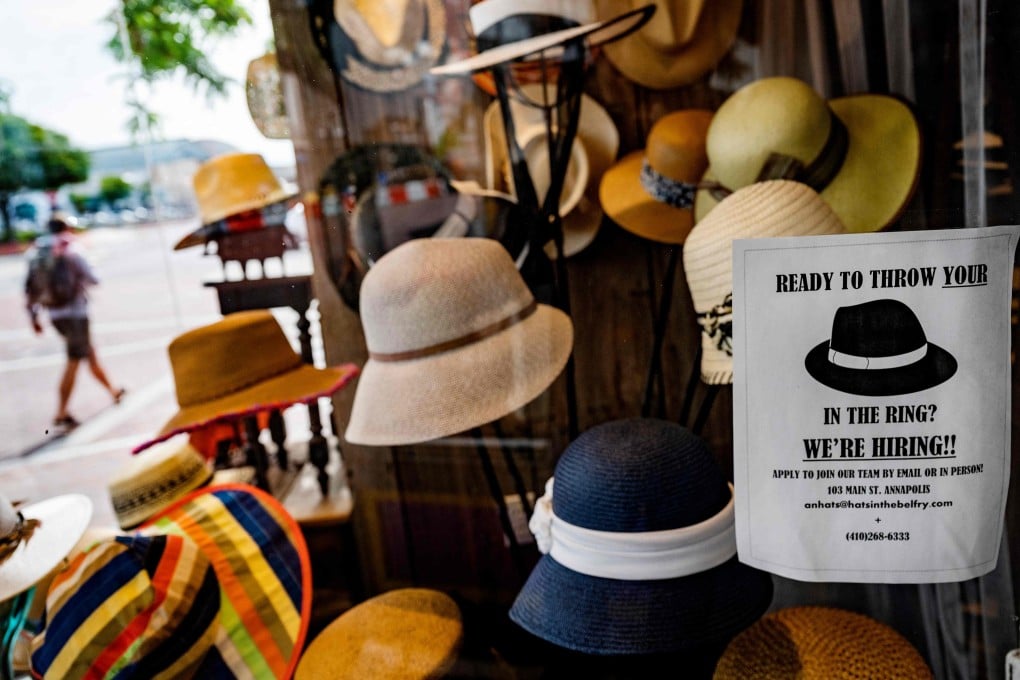Opinion | In an overstimulated US economy, will inflation really be transitory?
- Thanks to government support, many are being paid not to work. There are fears the Fed has distorted economic activity and laid a foundation for high inflation
- As the US has had no significant inflation for two decades, most Americans are unaware how debilitating it can be

US Federal Reserve chairman Jerome Powell is staking his reputation on the current spike in inflation being transitory. Powell and his colleagues on the Federal Open Market Committee believe that the US economy is still reeling from the Covid-19 pandemic and requires continued, unprecedented monetary and fiscal support.
Powell is undeterred by first-quarter annualised GDP growth of 6.4 per cent, pointing instead to the economy being 7 million jobs short than before the pandemic.
In main street America, help-wanted signs abound whether in Des Moines, Rockville or Racine. There’s little doubt the economy is distorted and overstimulated. Warren Buffett, the 90-year-old sage of Omaha, says 85 per cent of the economy is “running in super high gear”.

